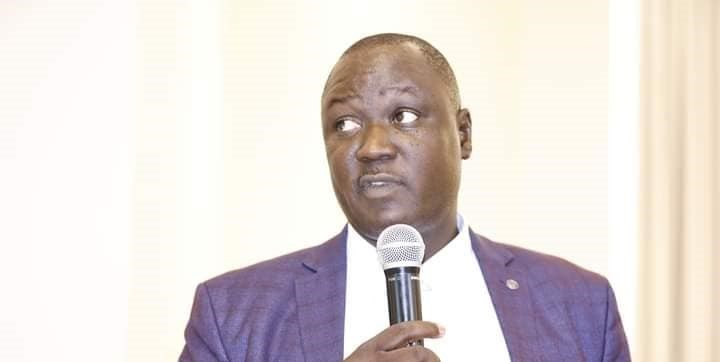I have recently come across a disturbing video that, based on discussions I saw on social media, I can conclude many people have seen. The video shows a girl being raped.
Reading comments from a number of people on the issue has compelled me to give my opinion on the case.
One particular comment was that it was possible the girl in that video consented to the act.
Then the question is: What does the law say?
The South(ern) Sudan Penal Code Act, 2008, Section 247 (2) stipulates that:
“A consent given by a man or woman below the age of eighteen years shall not be deemed to be consent……”
The argument that the girl consented to the act, therefore, will not hold any ground in the court of law since the parents of the girl stated that she is sixteen (16) years of age.
Anyone below the age of eighteen is regarded as one who has not yet reached the age of consent or is legally incapable of entering into certain agreements or contracts, including consent for sexual acts.
However, the issue of age is always contentious in courts of law. The defense team might argue that the victim has reached the age of consent (18). So, if there is doubt, then a medical expert in the field of age assessment will have to provide expert knowledge on the age of the person whose age is in question.
Another argument I saw online is that the girl belonged to a gang group that was rivaling the group that raped her. The presenter of this thought says that since she was in a gang group, she then deserved what happened to her.
Let’s look at the law again:
The South(ern) Sudan Penal Code Act, 2008, Section 247 (1) says:
“Whoever has sexual intercourse or carnal intercourse with another person against his or her will or without his or her consent commits the offence of rape, and upon conviction, shall be sentenced to imprisonment for a term not exceeding fourteen years and may also be liable to a fine.”
It does not matter whether or not the girl belonged to a gang group. The matter before us is: Is she below eighteen years of age? If the answer is yes, then any sexual intercourse with her is rape. And even if she was eighteen years or above, if she did not consent to the act, it’s still rape, and those who commit that crime have to be punished in accordance with the law.
The police say they have arrested a number of suspects (seven people) and that some suspects are still at large. What needs to be done now is to expedite the trial and make the court sessions open to the public and the media, just like the video has been made public. But at the same time, the court should ensure that the victim is protected from being put through further trauma.
One of the issues in court is likely to be the admissibility of the video evidence. There are likely to be questions about the source of the video. There could also be questions about whether or not the video is manipulated. That’s where the National Communication Authority (experts in Information Communication Technology) or any ICT expert could be needed in court to provide expert knowledge.
There might also be a need for a letter from the National Communication Authority to confirm to the court which and whose phone recorded the video. If the phone used to record the video belongs to someone else who is not part of the group arrested, then the owner of the phone may be needed by the police and court for interrogation or to help with the investigation.
In a criminal case, the standard of proof is “beyond reasonable doubt.” The burden of proof lies on the prosecution (state). The defense team will work to create doubt so that the accused are either set free or their sentences reduced.
Another argument I have seen online is that the person who recorded the video might be innocent.
This brings in the question of context and what the person did after recording the video. By recording the video, was the person aiding and abetting the crime, or was the person working to deter the crime?
When the person had the video, did he/she use it to report to authorities for action to be taken, or did they post it online to traumatize the victim?
There may be many questions, twists, and turns regarding this case, but what many South Sudanese say in the public court/online is that the perpetrators need to be heavily punished to deter sexual and gender-based violence.
It’s abundantly clear that there are sufficient laws to deal with the crime of rape in South Sudan. It’s now up to the police and the prosecution to do a good job to ensure the perpetrators of this particular crime are punished and used as an example to all those who may be thinking of attempting to commit any sexual and gender-based crimes in the future.
The writer, Oyet Patrick, is a journalist and the chairperson of the Union of Journalists of South Sudan. He can be reached via email at oyetpatrick12@gmail.com.
The views expressed in ‘opinion’ articles published by Radio Tamazuj are solely those of the writer. The veracity of any claims made is the responsibility of the author, not Radio Tamazuj.




